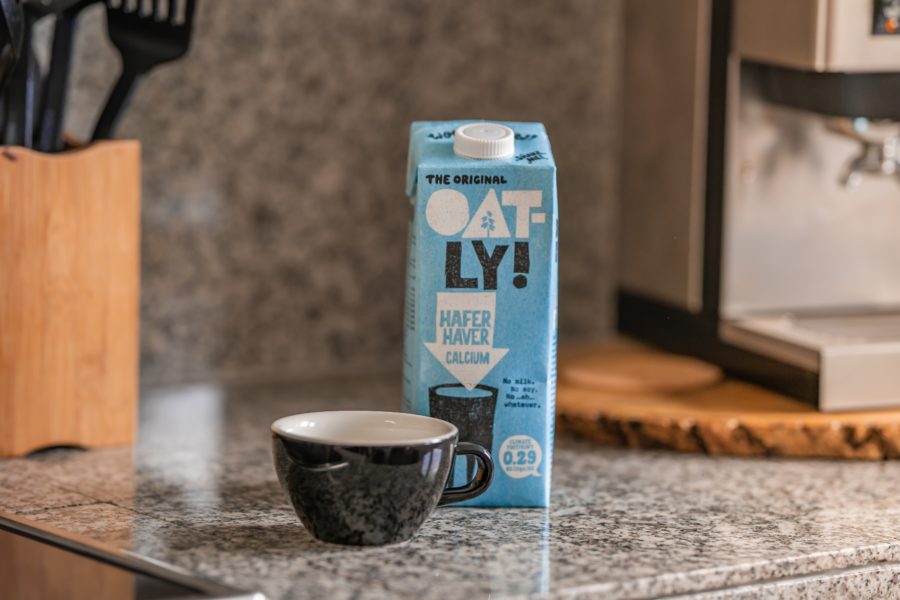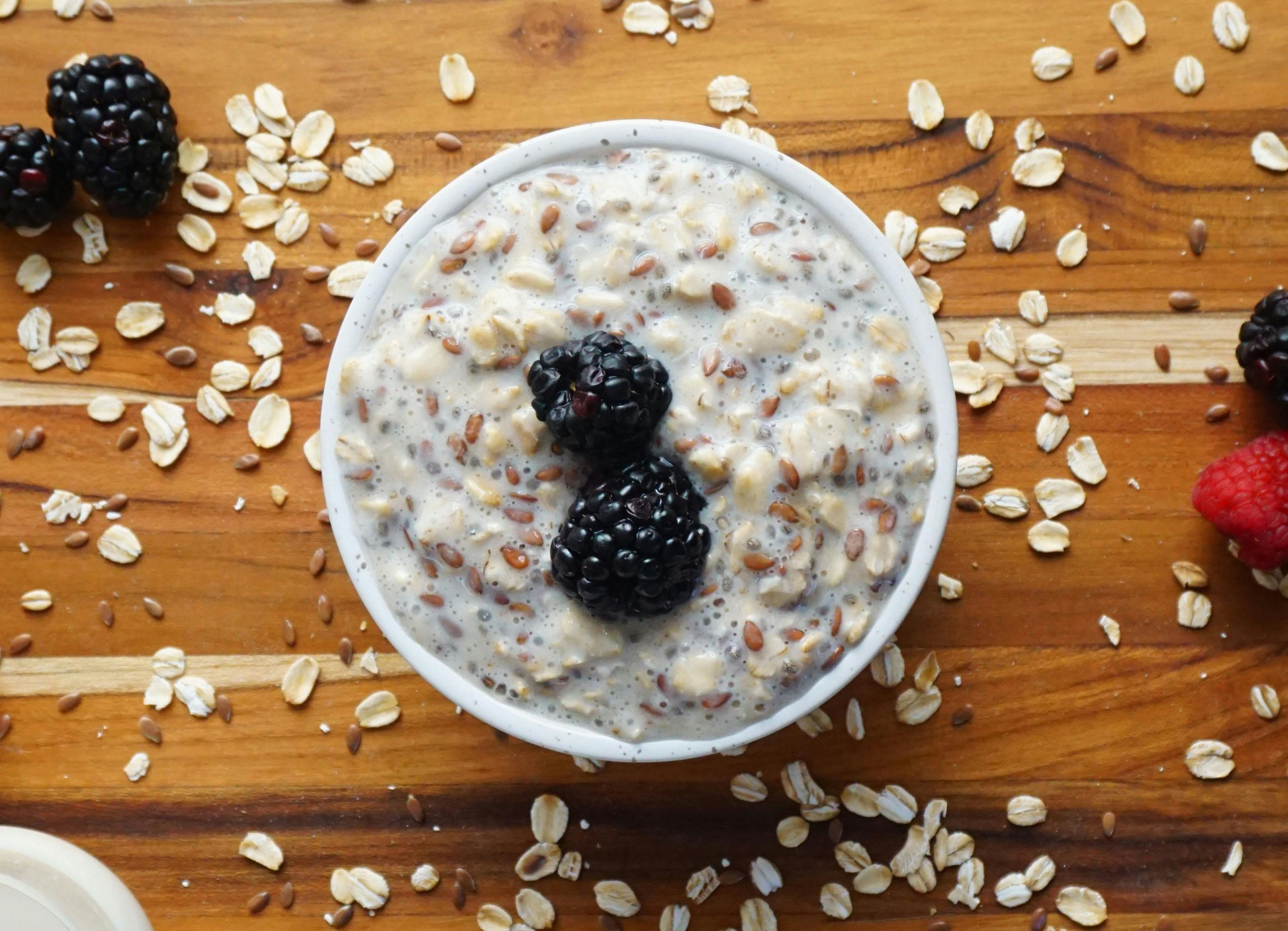Plant-based food and drink companies are tapping into rising consumer demand for animal product alternatives, including milk.
In fact, sales of plant-based milks grew five percent in 2019, making up 14 percent of the entire milk category, according to the Plant Based Foods Association. Further, the plant-based milk market is growing at a compound annual growth rate of 10 percent and is expected to reach $21.52 billion in 2024, according to Research and Markets.
And while almond milk continues to dominate the plant-based milk segment with a 63 percent share, oat milk is gaining momentum, recently surpassing soy milk to reach the No. 2 spot (Food Navigator, September 2020). U.S. oat milk sales climbed more than 170% during the 52-week period ended Feb. 13, according to Nielsen data.
So, with oat milk sales growing like gangbusters, what gives?
For starters, it goes great with coffee.
In a piece written for Vegconomist last year, oat-milk producer Oatly AB’s former U.K. head David Peters noted “oat milk works especially well in coffee, complementing, rather than dominating, the flavour of the coffee. In its barista version, it remains intact when added to coffee, unlike other alt-milks, which separate. This allows baristas to perform latte art – an important presentation tool for coffee shops.”
And while there’s no guarantee of latte art, oat milk has certainly hit the mainstream coffee-shop scene with Starbucks now carrying Oatly’s oat milk nationwide and incorporating it into the coffee giant’s spring menu through the new Iced Brown Sugar Oatmilk Shaken Espresso.
Additionally, oat milk’s texture is similar to cow’s milk and its flavor is sweeter, giving it an advantage over other plant-based milks, particularly in coffee.
Oat milk’s sustainability and familiarity
Peters also highlighted the positive environmental benefits of oat milk.
“Oat milk is widely considered to be the most sustainable and environmentally-friendly of all the mainstream plant-based milks, both in comparison to cow’s milk and other alt-milks. Oatly claims that switching from cow’s milk to oat milk can save up to 73 percent of carbon dioxide emissions. Similarly, while it takes 4-5 litres of water to grow a single almond and the soybean industry has caused extensive deforestation, oats are regarded as a valuable part of crop rotation systems and can be grown locally in many regions of the world.”
In addition to its benefits on the sustainability front, oat milk can be enjoyed by consumers, including those with a nut allergy, who are unable to drink the likes of almond milk or hazelnut milk. And while most are not aware of the beta glucan in oats that gives them their healthy properties, consumers associate oats with the wholesome nutritional value of oatmeal and appear more likely to align with oat milk than other plant-based milks.
Oatly and the outlook for oat milk
The main questions for oat milk producers over the longer term are can market share continue to rise and will people continue to pay two- to three-times the price of cow’s milk?
Oatly, the Sweeden-based oat milk producer backed by celebrity entrepreneurs Oprah Winfrey and Jay-Z, appears to think so.
After confidentially filing for an initial public offering in the U.S., the company is considering a value of around $10 billion in the listing, bolstered, in part, by the prospects for market growth (Bloomberg, Feb. 23).
Oatly also recently submitted proposals for a production facility in Peterborough, England that will have the capacity to produce up to 450 million liters of oat milk per year.
So, as life returns to normal over the coming months, market observers will surely be monitoring the plant-based segment for clues on the prospects for oat milk and other milk alternatives.










